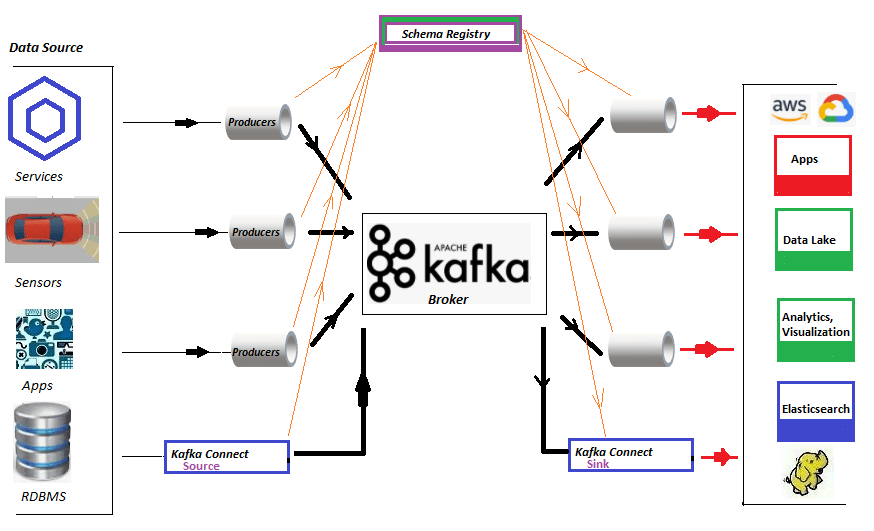Importance of Schema Registry on Kafka Based Data Streaming Pipelines
Needless to say Apache Kafka delivers messages to both real-time and batch consumers without performance degradation and in addition to that gaining enormous momentum as a foremost component for data streaming pipelines too. Credit card fraud detection, predictive maintenance, or real-time analytics, building streaming IoT platform, etc are the example of real-time use cases. To handle massive amounts of data ingestion, Apache Kafka is the cornerstone of a robust IoT data platform. A schema defines the structure of the data...

